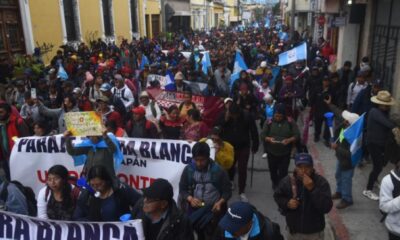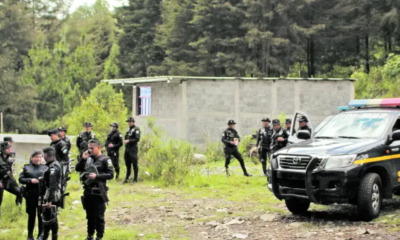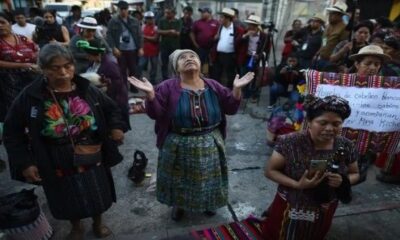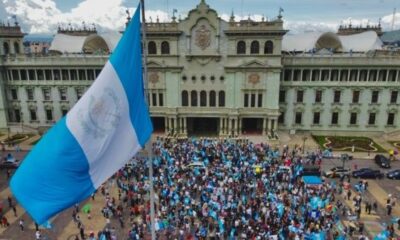Central America
The situation of Guatemalan journalists exiled in the last four years is “very critical”
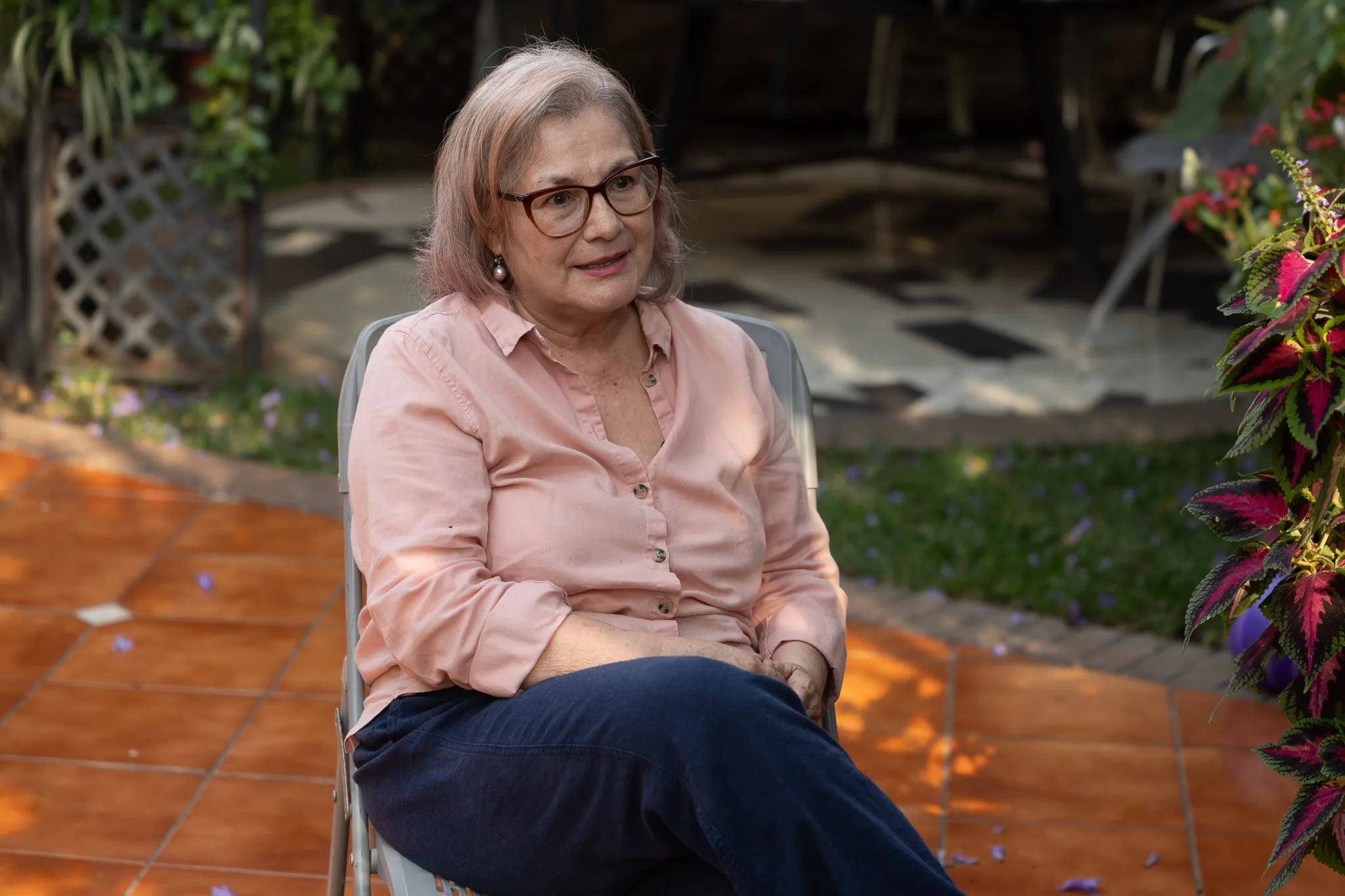
Journalist and defender of freedom of expression Evelyn Blanck warns that the reporters who have been forced to leave Guatemala are in a “very critical” situation and that there are still no conditions for them to return to the country, despite the positive turn in the press that has been given with the Government of the new President Bernardo Arévalo de León.
Blanck is the coordinator of the Civitas Center, an organization that seeks to ensure the freedom of the press in the Central American country and that has coordinated support for more than twenty journalists who have had to go into exile, after denouncing political persecution against her in the last four years.
“Colleagues in exile are in a critical situation,” the journalist warns in an interview with EFE and assures that among the twenty colleagues who were forced to leave Guatemala in recent years, there are three mothers who are separated from their children and many others who struggle to find conditions to continue practicing journalism.
Several of them “are struggling to survive because they came out with emergency funds, with financing for three months and they never have anything guaranteed,” says this journalist with more than 30 years of experience.
According to an analysis by the social organization Red Rompe El Silencio, 44% of Guatemalan journalists exiled have had to stop exercising their profession and most are refugees in the United States, Mexico, Costa Rica and seven other countries.
This crisis of “political persecution” against the press in several Central American countries revealed that there is no comprehensive system of care for journalists who are forced to leave their country, says the activist.
“The only thing we have left is to try to work with the Central American network of journalism solutions so that colleagues have conditions to stay outside because today Guatemalans, Salvadorans and Nicaraguan exiles cannot return,” Blanck concludes.
Journalists Juan Luis Font, director of the radio program Con Criterio and Michelle Mendoza, who was a correspondent for the CNN network in Guatemala, top the list of Guatemalan communicators who have had to go into exile.
In Blanck’s opinion, the Government of the new president of Guatemala exhibits “an institutional discourse that recognizes the work of the press, although its ability to maneuver is very little because the State is still co-opted.”
“Of course there is tension, but it is different from the administrations of Alejandro Giammattei (2020-2024) and Jimmy Morales (2016-2020), where there was an absolute public contempt for the press and that is over,” says the journalist.
According to the Association of Journalists of Guatemala (APG), during the administration of Giammattei there were more than 400 attacks on the press by public officials, and the vast majority of these were dismissed and not investigated by the authorities.
That is why Blanck refers to the Government of Arévalo de León as “a respite that we do not know how long it will last,” and warns that there are no conditions for journalists who left the country under persecution to return while the co-optation of the Judicial Body and the Public Ministry (Public Prosecutor’s Office) persists.
“Doing journalism in Guatemala has always been facing a country of censorship, it is facing power. This is one of the most difficult countries to do quality journalism,” says Blanck.
The Guatemalan Prosecutor’s Office, headed by Consuelo Porras Argueta, has led several cases against communicators in recent years and the most emblematic is that of José Rubén Zamora Marroquín, an internationally recognized journalist who was arrested on July 29, 2022, a few days after launching criticism against the close circle of the then president, Alejandro Giammattei.
Zamora Marroquín, who recently served 600 days in prison, is still waiting for the repetition of the trial against him for an alleged money laundering case and indicated that since the arrival of Arévalo de León to power in January, he has been guaranteed decent conditions in his arrest.
Central America
Panama grants Martinelli 72-hour extension to travel to Nicaragua
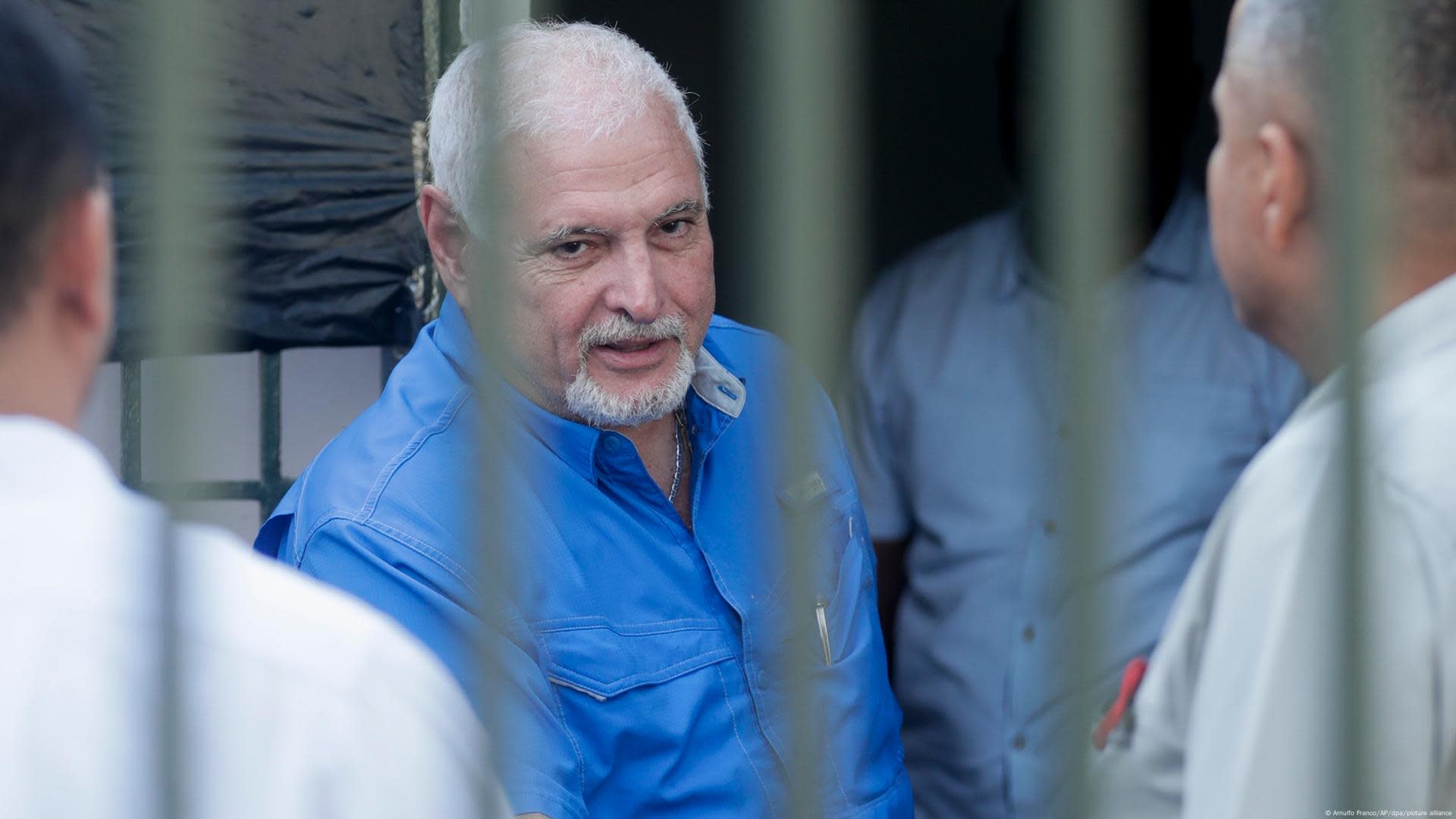
On Monday (March 31, 2025), Panama extended the safe-conduct pass for former President Ricardo Martinelli by three more days to allow him to travel to Nicaragua, after the Central American country refused to receive him due to concerns over an alleged Interpol arrest warrant.
“The National Government has decided to extend the validity of the safe-conduct pass for an additional seventy-two (72) hours, until the end of Thursday, April 3, 2025,” the Panamanian Foreign Ministry stated in a communiqué. The original permit was set to expire Monday at midnight (05:00 GMT on Tuesday).
The Foreign Ministry explained that regarding the ‘humanitarian asylum’ granted to Martinelli last Thursday, which was set to expire Monday at midnight, the Nicaraguan government requested clarifications about an apparent Interpol alert, which had already been dismissed as inadmissible.
Additionally, the Panamanian Supreme Court of Justice, as the highest authority of the Judicial Branch, stated on Monday that it had “no objections” to granting asylum and a safe-conduct to Martinelli, as it falls under the jurisdiction of the Executive Branch.
Central America
U.S. Homeland Security Secretary urges Mexico to strengthen Guatemala border
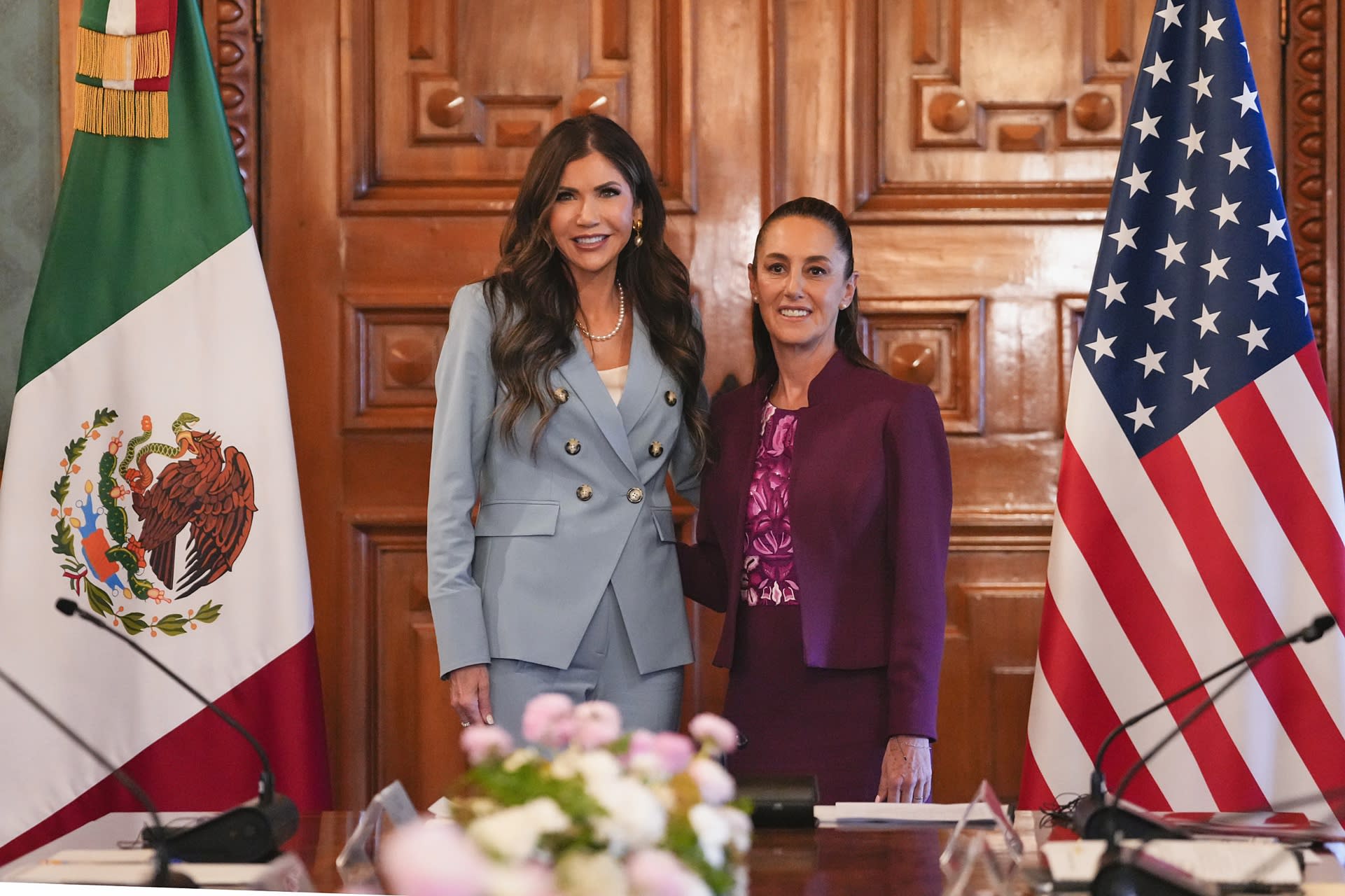
U.S. Homeland Security Secretary Kristi Noem revealed on Monday that during last week’s meeting with Mexican President Claudia Sheinbaum, she urged Mexico to reinforce its border with Guatemala and share biometric datawith U.S. authorities.
“I gave her a list of things that President Trump would love to see. And it was exceptional. It was supposed to be a half-hour meeting, but we talked for nearly two hours. It was very productive,” Noem said in an interview with Fox News.
The Homeland Security Secretary requested that Sheinbaum, who has already deployed 10,000 National Guard troopsalong Mexico’s northern border with the U.S., also secure Mexico’s southern border with Guatemala.
Noem added that she also asked the Mexican president to share biometric data with the U.S., to which Sheinbaum responded that she was “willing to discuss it,” although she acknowledged that it could be a controversial issue in her country.
Central America
Panama police clarifies that Interpol alert for Martinelli is still pending
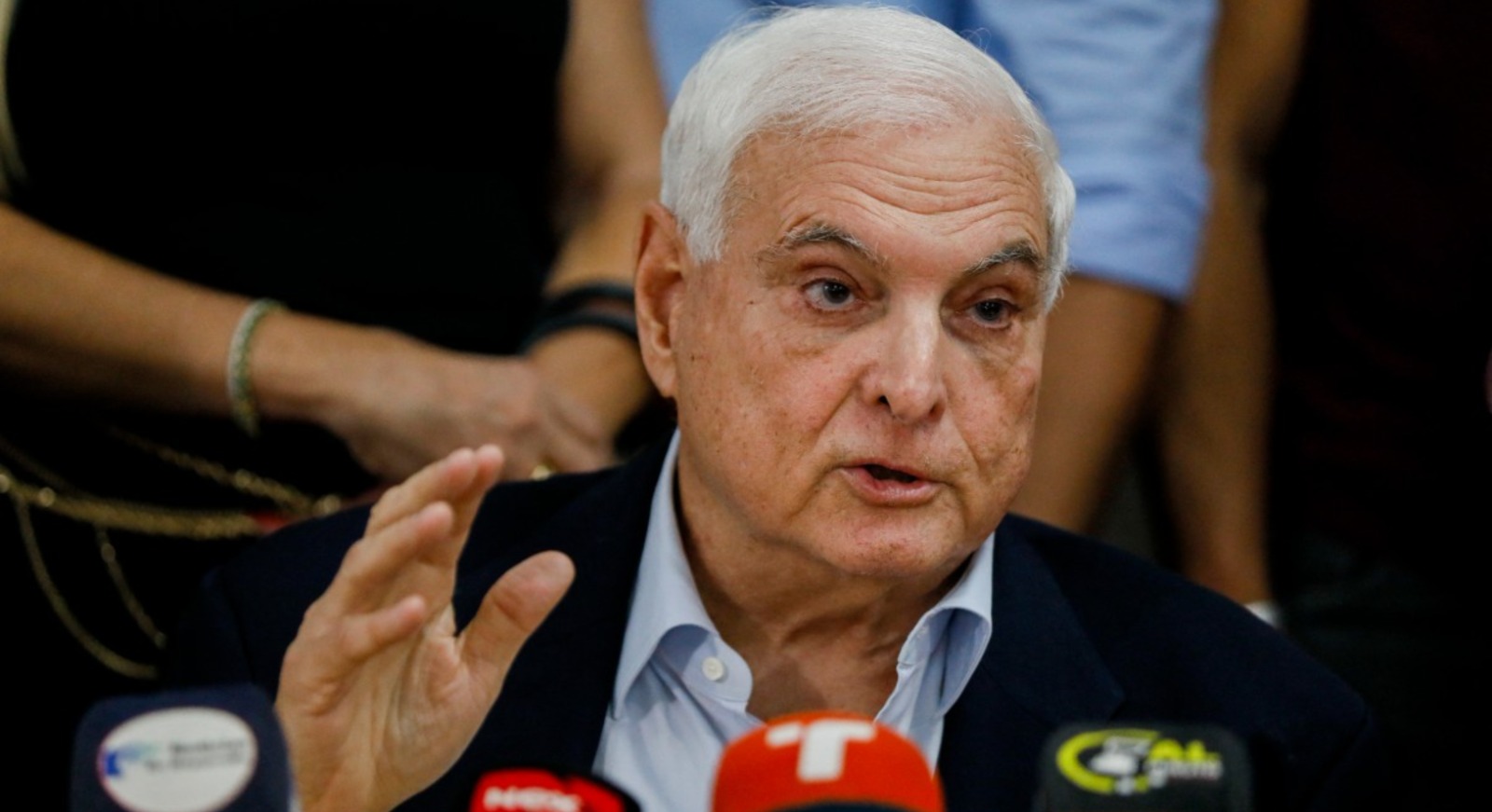
Panama’s National Police clarified on Sunday that an Interpol alert request for former President Ricardo Martinelli (2009-2014) is still under review and has yet to be confirmed. Martinelli was granted a safe-conduct pass last Thursday to leave the Nicaraguan embassy, where he has been seeking asylum since February 2024 after being convicted of corruption.
“The National Police clarifies that there is currently an active process for an Interpol alert, requested by Judge Baloisa Marquínez, against former President Ricardo Martinelli. This request must be analyzed by Interpol’s General Secretariat (headquartered in France) for approval or rejection. If approved, it will be notified to member countries,” the police stated in a press release sent to EFE.
According to the statement, “at the moment, it remains an ongoing procedure, and former President Martinelli does not have a confirmed alert.”
The announcement came hours after National Police Director Jaime Fernández had told the press that an “Interpol alert” for Martinelli had been received on Friday.
-

 International3 days ago
International3 days agoSon of journalist José Rubén Zamora condemns father’s return to prison as “illegal”
-

 International3 days ago
International3 days agoMiyazaki’s style goes viral with AI but at what cost?
-

 Central America2 days ago
Central America2 days agoPanama police clarifies that Interpol alert for Martinelli is still pending
-

 Central America1 day ago
Central America1 day agoU.S. Homeland Security Secretary urges Mexico to strengthen Guatemala border
-

 International1 day ago
International1 day agoTrump urges Putin to reach peace deal
-

 International2 days ago
International2 days agoDeportation flight lands in Venezuela; government denies criminal gang links
-

 Central America1 day ago
Central America1 day agoPanama grants Martinelli 72-hour extension to travel to Nicaragua
-
Central America4 days ago
Nicaragua revokes legal status of 10 more NGOs, bringing total to over 5,600


































































